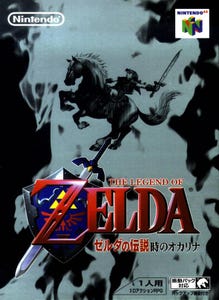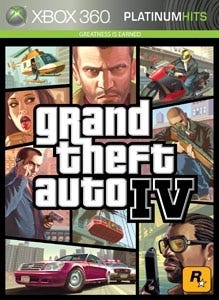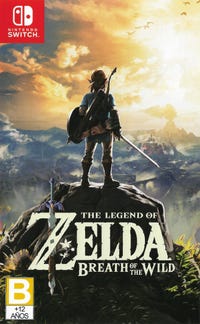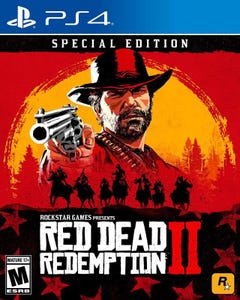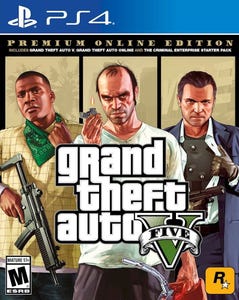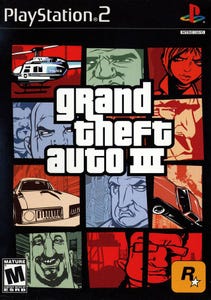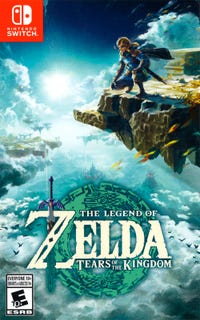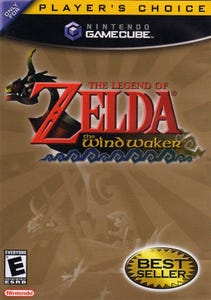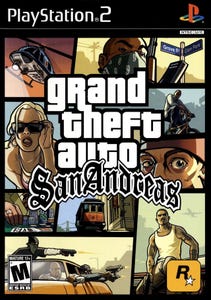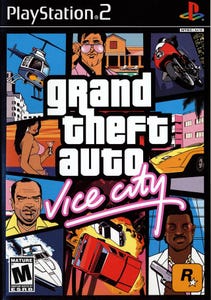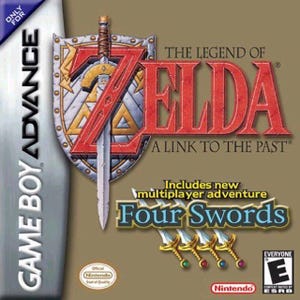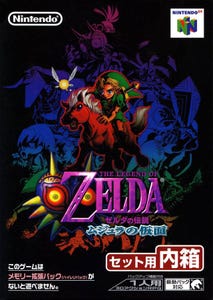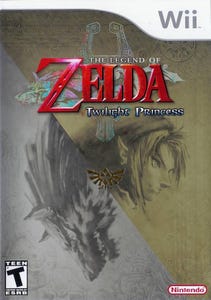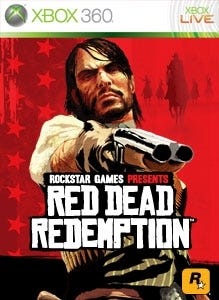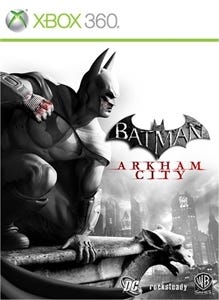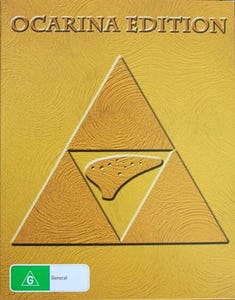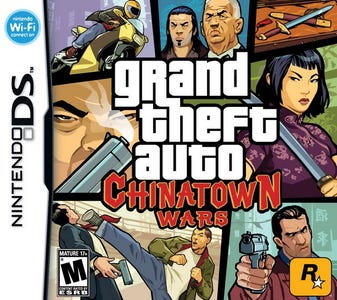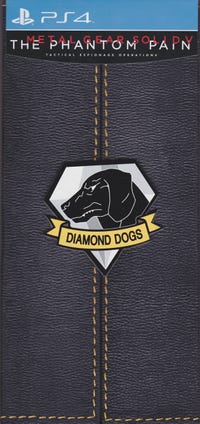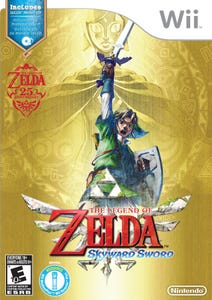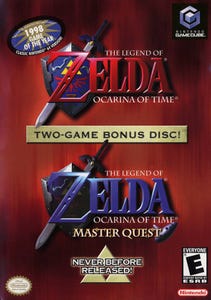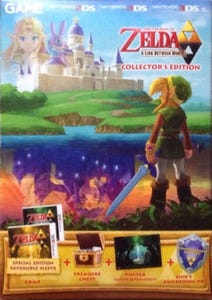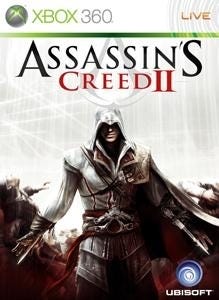X
- E10+
- Annapurna Interactive
- E10+
- Annapurna Interactive
- E10+
- Annapurna Interactive
- E10+
- Annapurna Interactive
Outer Wilds
Released On: May 28, 2019
85
8.8
Where to Buy
Where to Buy
All Platforms
View All Platforms
Metascore
Generally Favorable
Based on 33 Critic Reviews
85
82% Positive
27 Reviews
27 Reviews
6% Mixed
2 Reviews
2 Reviews
0% Negative
0 Reviews
0 Reviews
Metascore
Generally Favorable
Based on 33 Critic Reviews
85
82% Positive
27 Reviews
27 Reviews
6% Mixed
2 Reviews
2 Reviews
0% Negative
0 Reviews
0 Reviews
This is a rare adventure game in which the journey is actually more of a reward than the destination.
Forget about the space battles and hours poured into crafting. Outer Wilds redefines what exploration means in a video game. Smart writing and ingenious game-design, it’s a vibrant call to follow your own curiosity.
User Score
Generally Favorable
Based on 1,021 User Ratings
8.8
85% Positive
872 Ratings
872 Ratings
6% Mixed
63 Ratings
63 Ratings
8% Negative
86 Ratings
86 Ratings
User Score
Generally Favorable
Based on 1,021 User Ratings
8.8
85% Positive
872 Ratings
872 Ratings
6% Mixed
63 Ratings
63 Ratings
8% Negative
86 Ratings
86 Ratings
Outer Wilds is not for everyone. For some people, this game may seem frustrating or boring, but that is because this game is not to be played in a hurry. It truly isn't about the destination, I myself didn't even want to finish the game, because I knew I could not play it again.
This game has mixed and negative reviews because it definitely isn't for everyone, but it definitely is worth trying.
This game is a one time experience that everyone should try to play, calmly. Play it in your free time, when you have nothing else to do. If you get stuck in a puzzle or part of the game, don't force it, just take a break from the game, go do something else, and return later.
The storytelling is absolutely awesome, the way you realize what is happening, no matter the order in which you get the little peaces of information is incredible, the way you realize at points of the game that you knew nothing all along.
Must play (must try).
Truly a masterpiece. 10/10
There is simply no other game that better illustrates the essential importance of three fundamental elements of the species we are part of: wonder, curiosity, knowledge. This is what games should be all about. I remember reading Borges' diary a long time ago, and there is one particular passage where he summarizes all the moments he listens to Mozart after some time and always has the same realization afterward: only THAT music was all he ever needed and sought from his core, of which he was completely oblivious during periods of listening to music from his own era. The same goes for books or movies, fields which are filled up with immense trash today. Not to mention music. It takes just one good dive into roots to resonate with all the archetypes within your individuality that will evoke all the "spirits" of your kind, profoundly fulfilling you as if you're part of something eternal, something higher than oneself. It's what ART is all about. It's not activism or a political discourse or any ideology that comes from your era and others' intentions to subtly or obviously affect reality in a modifying manner to consolidate their tendencies and profits, no... It's an "escape pod" in the bramble of our most feared enemy - mortality, it is a "distress beacon" of our ancestral kind that easily defeats it by transcending time, it's a set of coordinates that warp you to the location you've always been but remained oblivious about it your whole life...Until you press play.
As someone who loves adventure and puzzle games, Outer Wilds was a match made in heaven. It’s not action-packed, and there’s not crafting or deep survival mechanics like most space games have. Instead, it delivers an engaging mystery that isn’t spoon fed to you. It offers its own unique challenge that I highly recommend to anyone that loves video games or space.
Outer Wilds is a genuinely delightful experience with a lot of bright points. It somehow manages to take the idea of a game about repeatedly dying in terrible ways and makes it enjoyable, relaxing and enthusiastic. It won't be a game for everyone due to its self-guided nature and its focus on puzzling things out for yourself, but it's exactly the game it needs to be. If you long for the space travel that No Man's Sky couldn't provide, give Outer Wilds a shot. It might not have a billion worlds, but each one is worth a visit.
Outer Wilds is an absorbing experience, charming and unique. It may seem simple, but there’s much more than meets the eye. One of those special titles virtual explores will love.
It may not have the same scale as titles like No Man’s Sky, but Outer Wilds packs in more interesting lore, narrative, and puzzle-y mechanics in its handful of planets than most other titles out there. If you’re looking for a breath of fresh air and fancy venturing out into space for a laid back exploration and a damned good time, Outer Wilds should be your first port of call.
Outer Wilds is rife with breathtaking sights and sounds, and at the very least, no one could accuse it of being unambitious. Mobius Digital may be a small team but, almost paradoxically, they achieve a remarkable sense of scope by keeping things modest. However, their work suffers from the glacial pace of progress and a hands-off approach to storytelling. My biggest issues – a lack of combat, direction, or material rewards – are obviously deliberate, bold choices on the part of the devs, and I commend Mobius for them while also chiding the cold, inscrutable product that resulted. I admire Outer Wilds, but I don’t love it.
This is the best game ever made in my opinion, the only form of progression is your knowledge, and that's why it is special, it doesn't holdyour hand, it let's you just find put by yourself and learn until you finally understand what is happening.
It is also breath takingly beautiful, the world is so well built and alive, it doesn't matter whether you are there to see it or not, it will happen.
The history is so well built and interesting that i could go for hours talking about it, and the dlc only makes it better, so it definitely worthwhile.
Play this. I can recommend it to everyone. It doesn't matter if you are experienced in gaming or not, everyone can enjoy it, but i would recommend that you play it when you feel like it, cause this is an experience so good and you will not have abother chance once you finish it, so don't rush it.
This really is a beautifully crafted game, but unfortunately doesn’t connect with everyone - I was one of them. However, it’s impossible to give this game a fair shot and not respect the brilliant design. It’s a blend of the world building and blind exploration of Myst/Riven, the time loop of Majora’s Mask, and the spirit of space exploration of No Man’s Sky. I enjoyed all three of these games in the past, but this one was a lot to digest, possibly too much to digest for some. The little solar system they created is really cool, it steps outside of a conventional solar system that we expect based on what we know. The planets seem pretty small and linear at first - it’s not like a Fallout or Skyrim game where you have a labyrinth or sprawling world underneath, but more so a carefully crafted zone that is intended to be followed a specific way. The lore is hit or miss, at least to me. Sometimes the backstory is kind of interesting, but most times it’s very surface level and just uninteresting. The story/lore is sometimes just following the explorer who was there just before you - not a bad plot, but very unimaginative. Sometimes the plot will cover something a little more interesting, but generally most of the plot lines are bland until a bit later in the game. I do like the exploration and learning to the game, nothing is force fed, there are no checkpoints, you just slowly become more engaged in the world. The graphics are pretty forgettable but that isn’t much of an issue because the visuals of the solar system living are sometimes very cool to see. The controls are tough at first, but once you figure it out, it gives a nice consistent challenge that adds to the gameplay. Overall I appreciate this game and respect it for what it is. It’s a very very very slow burn that won’t work for everyone, but there is a great game waiting for those who can get into it.
Outer Wilds is a puzzle/adventure game. You play as an unnamed alien of the Hearthean race, a race of four-eyed, blue-skinned aliens who live on the Timber Hearth, a planet in a small little solar system full of strange planets. You are an astronaut – the fifth of your kind to go to space – and after speaking to a handful of your people on your home planet and doing some basic training to get used to the controls, you get the launch codes to your spaceship and head off into space.
Well, for twenty two minutes, anyway.
As you quickly discover, this game is a time loop. Your goal – such as it is – is to figure out what is causing the time loop and how to fix the problem you’re facing at the end of it, if such a thing is even possible.
While a game like this might seem like something where you’d find items and use them to solve problems, there’s surprisingly little of that – there are some carryable items, but they cannot be carried between loops at all, and are almost always simply used on something nearby to reveal some text or other puzzle clues. The only things you have are the tools you got at the start of the game – a device that shoots probes that can take pictures, and a signal detection device.
It turns out, this is enough.
Because literally everything resets every loop, the only thing you can actually bring back in time is information. Fortunately, not only does this work well with the game’s sort of cerebral nature, but the game itself gives you tools for tracking the information you have in the form of your ship’s log, which both stores information by location (planet or moon or what have you) but also by connection – various things you find connect to other things, and it shows you lines heading off to unknown things you haven’t discovered yet.
Fortunately, it also lets you know whether or not you’ve missed anything in areas you have explored, which helps to avert frustration.
Because of the game’s 22 minute time limit per loop, none of the puzzles can be overly difficult mechanically – almost all of them are things that can be done in under a minute, if you know what you’re actually *supposed* to do.
However, figuring out the whole puzzle of the game might take you until the end – even though the entire game can technically be solved in about ten minutes if you know what you’re doing.
The game does a pretty good job of chaining together a variety of things and giving you a bunch of hints that lead you on to new areas and new puzzles. The puzzles tend to be environmental in nature, and you get plenty of hints (and sometimes, outright statements about how to solve them), though some are a bit more obscure and require more thought on the player’s part.
Because every time you die or reach the end of the time loop the world resets, many things in the game are based around timing – one planet gets covered with sand while another gets denuded of it, for instance, which creates puzzles based on when various things get uncovered/covered up. Another planet is gradually crumbling, which can either allow or deny access based on how much it has fallen apart.
Unfortunately, these puzzles, while cool in some ways, are also some of the most frustrating – because if you screw them up, you have no choice but to reset the loop, and if it is a puzzle that occurs near the end of the loop, you’re going to have to wait for the whole loop to go by to retry it. There are also some large underground areas which can be something of a pain to properly explore. There were several occasions where I ran out of time before I could finish exploring an area or solving a puzzle, necessitating significant backtracking, sometimes repeatedly.
This created an odd issue – experimenting was sometimes a bad thing, because if I screwed up, I’d have to start the loop over and backtrack all the way back over to where I’d died. This created a weird situation where the time loop made me NOT want to take risks, as resetting the loop would necessitate me spend time jumping through the same hoops over again to get back.
Indeed, for all that the game was a “puzzle game”, I honestly didn’t find myself enjoying the actual puzzles all that much. What really drew me in was the whole exploration and discovery aspect of the game - going around, seeing new places, and figuring out the plot and what was going on. The actual puzzles often were just flat-out explained to you by other hints, and some of the ones that weren't felt like they went a bit too far in the opposite direction.
Overall, I thought this was a pretty neat game – trying to figure out what was going on was neat, and the game left some fun red herrings to mislead me into thinking that the end of the game was going to be very different from what it actually was.
One bit of advice - avoid spoilers.
Honestly, just very slow-paced and boring. No discovery amazed me at all. Every character encounter had a lot of build-up, and the conversations were always vague, uninteresting and never revealed anything you already knew.
Just a lot of trial-and-error without anything entertaining in between.
Yet another disappointing and over-rated indie- darling to add to my list.
The graphics in OW can be impressive such as when on the Giant's Deep, but overall are very simplistic and childish. This is not a problem in itself but it does make for a very one-dimensional feel for a game that touts itself as thinking outside the box.
The gameplay of OW is downright awful for me. First off, we have the time loop mechanic. Thank God it doesn't take long to discover this as it was the final nail in the coffin for me. I'm not sure if they were aiming for replayability here, but it just created an awful amount of tedium and repetition for me to do the same things over again.
Speaking of tedium, the game seems to pride itself on not telling you where to go or what to do. There is a difference between open-ended exploring and just plain obtuseness and pretentiousness, the latter of which this game unfortunately falls under. I suspect the rave reviewers are a bit like Dark Souls reviewers - they use guides. I found no intuition in my 30+ years of gaming experience to be of use here.
To add to this, the physics and controls are awful too. Early in the game you control a little drone-like device that's basically harbinger of what's to come as it handles terribly and flops about before smashing into the ground.
When I visited each of the planets, I didn't find much of interest. Then I learned the game is a bit like piecing together a most annoying and tedious jigsaw where you have to hunt down the pieces.
As for the story, well I'd need to actually make progress in the game to learn the story or what the point is. I am clearly biased as I absolutely loathe the laziness of time-loop mechanics, so perhaps I was never going to enjoy this game.
Overall, I hate Outer Wilds. It's a pretentious indie game that tries too hard to be different and forgets to be enjoyable. It wasted too much of my time but I'm grateful I gave up when I did before wasting even more time.
Summary Outer Wilds is an open world mystery about a solar system trapped in an endless time loop.

Rated E +10
for Everyone +10
Platforms:
- PC
- Xbox One
- PlayStation 4
- PlayStation 5
- Xbox Series X
- Nintendo Switch
Initial Release Date: May 28, 2019
Developer:
- Mobius Digital, LLC
Publisher: Annapurna Interactive
Genres:

